I am often asked, "What can I do to naturally speed up my metabolism?" In this article, I'm going to show you how to do that by listing five highly effective natural metabolism booster tips.
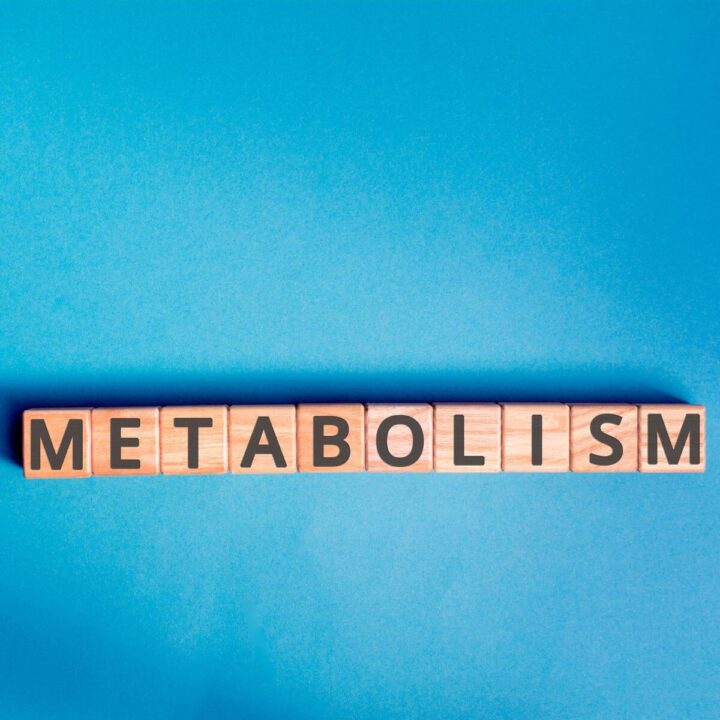
Table of Contents
When it comes to boosting your metabolism through diet, most of the information floating around is either false or heavily exaggerated.
Are cinnamon and cayenne pepper metabolism boosting spices? Do bananas boost your metabolism?
However, if you know which information to listen to and which information to ignore, you can easily increase the amount of calories you burn each day with a few simple dietary changes.
✅ Naturally Improve Your Metabolism With 5 Easy Nutrition Tips That Boost Your Metabolism
So, how exactly does metabolism work? Let's explore this topic more in depth.
⁉️ How Does Metabolism Work And How Can It Benefit Your Nutritional Health?
The basic concept is that the body breaks down food into tinier molecules, so they can be used by the body to produce energy.
This occurs in two stages: catabolism and anabolism. Catabolism is the cellular process of breaking down molecules into smaller ones, resulting in water, carbon dioxide, and energy in the form of ATP.
Anabolism is the second stage in metabolism. This is where the body converts those smaller molecules substantial enough for your body to repair its organs, tissues, and cells. Anabolism occurs inside the cell's mitochondria.
When you think of how to improve or heal your metabolism, you need to increase the production of ATP.
There are several ways to do this. Movement, eating more food to reset your metabolic function, vitamins, and supplements. If you previously restricted your calorie intake, your metabolic rate suffers because your body thinks it's in starvation mode.
By increasing your caloric intake, you can help reset your slow metabolism to function more efficiently.
🧡 5 Effective Nutrition Tips For Boosting Your Metabolism
Let's discuss eating and your metabolism. So, how does diet affect metabolism?
1. Eat Intuitively For A Metabolic Boost
One of the biggest metabolism myths is that you need to eat five or six mini-meals at even intervals during the day.
However, this is actually nothing more than a successful rumor created by supplement companies to sell more products.
The truth is as long as your daily calories are consistent and in line with your basal metabolic rate (click here to calculate your BMR), the timing and number of meals you consume isn't important.
So instead of struggling to fit five or six mini-meals into your day, create a meal plan that suits your lifestyle. By doing this, you'll enjoy your meals more, but you'll be much more motivated, as you're not forcing yourself to eat when you'd rather not.
It's all about learning to eat naturally and intuitively.
⁉️ What Is The Number 1 Metabolism Boosting Food?
So, the answer is not so simple.
There is no magically one food to fix all your metabolic problems. Rather, as a nutritionist, I help clients with all their metabolic nutritional needs.
Rather than focusing on metabolism boosting foods, focus on a well-balanced diet first. It is important to fuel your body with high-quality protein sources, complex carbohydrates, and healthy fats.
Yes, the same monotonous nutrition advice everyone speaks about.
By learning to eat naturally, a varied diet rich in vitamins, minerals, and antioxidants, your body will perform more efficiently for you.
2. Experiment With Spices Helps Boost The Metabolism
This is one of my favorite natural ways to boost the metabolism.
Spices are a terrific way to add a kick to your meals, and they also boost your metabolism in the process. When you consume spices, they temporarily stimulate your body's fat burning processes, and this results in you burning more body fat after you eat them.
In addition, eating spices raises your body's temperature, and your body then uses up more calories as it regulates this temperature increase.
🌶️ Spice Up Your Meals To Boost Metabolism Naturally
So if you don't currently use many spices in your cooking, start making some changes today. They are a fantastic natural metabolism booster.
There are plenty of spices available with different intensities and flavors, so you can easily find one that you like. Spices are also adaptable and can be used to season fish, meat, nuts, vegetables and seeds.
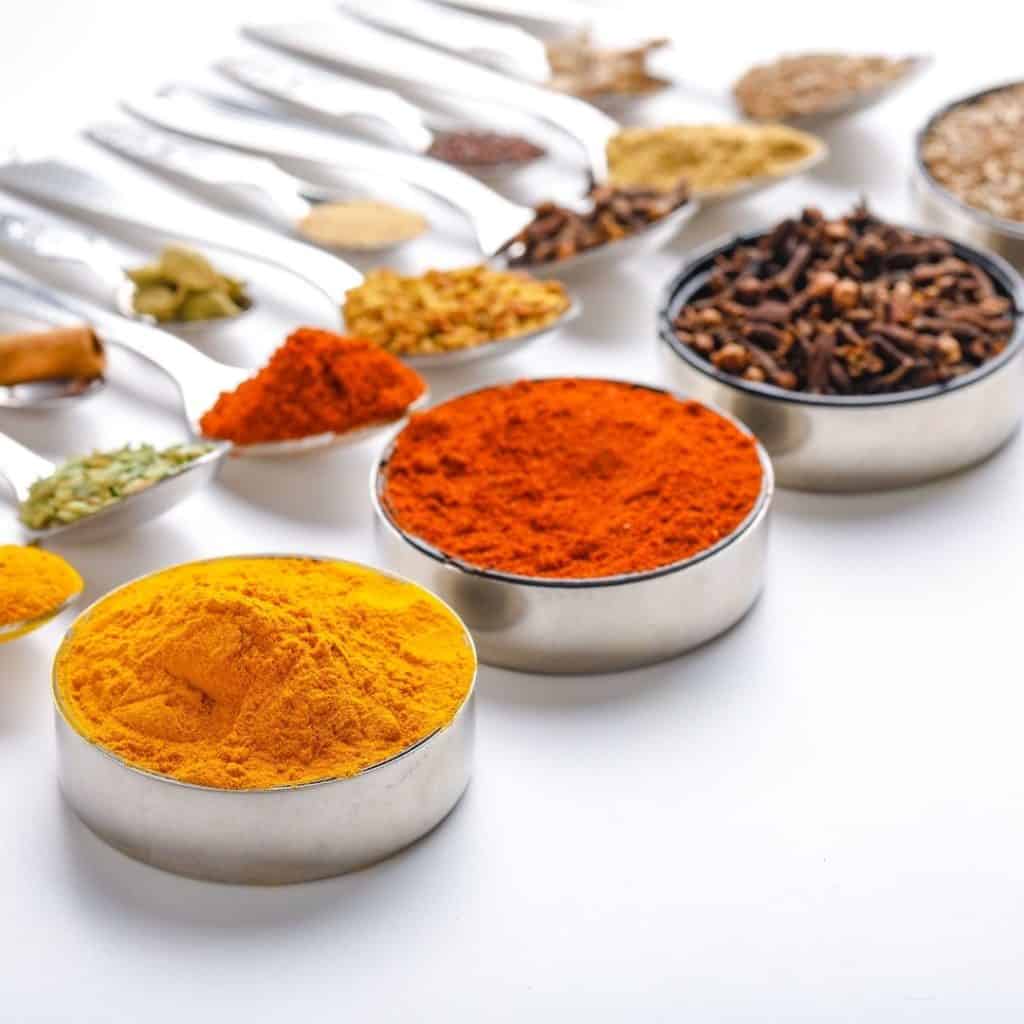
⁉️ What Spices Boost Metabolism?
Try experimenting with metabolism boosting herbs and spices, including cayenne pepper, ginger, oregano, black pepper, cinnamon, and cardamom.
🆙 What Nutrition Supplements Help Increase Your Metabolism?
Supplements are controversial in nature when it comes to increasing your metabolic function. The supplements currently on the market that claim to boost your metabolism include chromium, omega-3 fatty acids, and conjugated linoleic acid (CLA).
There are many more that I prefer not to mention, due to the high risks associated with using them. The few I mentioned are relatively low in terms of side effects and risks associated.
I suggest you do a bit of research on any supplements you might be thinking about taking, and noting the risks and side effects.
Always check with your doctor before taking any supplements. It is better to focus on my natural metabolism booster tips, rather than experiment with supplementation first.
3. Base Each Meal Around Protein To Boost Metabolism Naturally
By basing every meal you eat around protein, you give your metabolism a huge natural boost.
Unlike carbohydrates and fats (which burn a few calories during digestion), studies show that when you consume protein, your body uses up 25% of the calories it contains during digestion.
So if most of your meals are rich in processed carbohydrates (like white pasta or white rice), base them around a protein source instead (like tofu, fish or meat). Then bulk up the meal with vegetables.
By doing this, you'll still get some nutrient packed carbohydrates in your meal. But you'll cut out the excess carbohydrate calories and enjoy the calorie burning effects of protein.
4. Get Plenty Of Fiber As A Natural Metabolism Booster
Like protein rich foods, foods with high levels of fiber require more energy to digest. So they naturally enhance your metabolism when you eat them.
Fiber rich foods also increase the amount of nutrients you can absorb from your foods, protect against bowel disease and much more. Most plant-based foods contain high levels of fiber.
Therefore, to get plenty of fiber in your diet, simply fill up on fruits, nuts, seeds and vegetables.
📥 GET THIS RECIPE IN YOUR INBOX 📥
5. Avoid Processed Carbs
As mentioned above, if your diet contains a high concentration of processed carbs and you want to maximize your metabolism, you need to replace your carbohydrate rich meals with protein rich meals.
The reason for this is that processed carbs require few calories to digest. So the more processed carbs you eat, the fewer calories your digestive system burns off.
In addition, processed carbs contain few vitamins, minerals and phytonutrients. These nutrients support many processes within your body (including metabolism).
By failing to get enough of them in your diet, you can gain weight, slow down your metabolism, and reduce the total amount of calories you burn each day.
🌾 Focus On Whole Grains
So to keep your nutrient levels topped up, increase the amount of calories you burn during digestion.
Maintain an optimal metabolism. Cut back on processed carbs, and instead fill up on fiber rich, nutrient packed, natural carbs like fruits, nuts, seeds and vegetables.
💪 Does Exercise Increase Or Decrease Metabolism?
Exercising regularly will help boost your metabolism.
However, you should also remember that exercise can increase your appetite. If your goal is to lose a bit of excess weight, it is important to eat high fiber foods to help fill you up if you restrict your caloric intake. Remember to properly fuel your body when working out. Balanced eating is key.
⁉️ What Are The Best Vitamins To Regulate Or Help Boost Nutrition And Metabolism?
Do vitamins help regulate metabolism?
Studies have shown that vitamin D can help regulate metabolism. Vitamin D helps regulate the activation of certain genes associated with fat metabolism. Interestingly enough, vitamin D is a fat-soluble vitamin.
Therefore, you must consume fat for your body to properly absorb the vitamin.
Research has shown that vitamin D deficiency can increase one's risk of developing metabolic syndrome. When you decrease your risk of developing obesity, cardiovascular disease, insulin resistance, and diabetes, one's inflammation markers were noticeably decreased.
However, the question remains whether vitamin D deficiency contributes to the etiology of inflammatory disease, or if vitamin D deficiency is simply a manifestation of these diseases(1).
⁉️ What Vitamins Should I Take To Speed Up And Support My Metabolism?
The key vitamins essential for a healthy metabolism are B vitamins, vitamin D, iron, magnesium, and calcium. They all help support the body in proper energy production.
🦹 Nutrition Super Foods For Faster Metabolism
I like to call these foods my super foods for metabolism.
Foods rich in vitamin D include fatty fish, including salmon, egg yolks, mushrooms, fortified milks and cereals.
A few foods that contain B vitamins include whole grains, nuts and flaxseed, spinach, potatoes, bananas, and lean meats. Foods rich in iron are meats, beans, brown rice, dark leafy veggies, especially spinach, and tofu.
To get a reasonable amount of magnesium in your diet, try to include some of my super foods for metabolism, like bananas, potatoes, nuts like almonds and cashews, flaxseed, and halibut.
Calcium rich foods include yogurt, milk, almonds, fortified cereals, orange juice, and Swiss chard, all can naturally boost your metabolism.
🥗 Follow A Sensible And Balanced Eating Plan
As you can see, there are no magic dietary tricks when it comes to boosting or healing your metabolism.
However, by being sensible and adapting your diet so that it incorporates the five tips above, you can naturally raise your metabolic rate and burn through an increased number of calories each day.

🪜 6 Steps To Transform Your Metabolism In 6 Months
If you only focus on these 6 steps, you can completely transform your metabolic health in only a few months.
Regular Exercise
Aim for at least 30 minutes of brisk walking per day. Aerobic exercise can boost your metabolism, improve cardiovascular health, and contribute to weight management.
Extra Bonus Tip
Try to incorporate resistance training into your routine 3-5 times per week. Building lean muscle mass can enhance your metabolism, as muscles burn more calories at rest than fat.
Adequate Sleep
Ensure you get a full 8 hours of quality sleep each night. Sleep is crucial for overall health and plays a significant role in regulating hormones related to metabolism and appetite.
Hydration With Electrolytes
Drink adequate water throughout the day. Staying hydrated is essential for metabolic processes. Consider adding electrolytes to your water, especially if you engage in regular physical activity, to maintain proper fluid balance.
Balanced Nutrition
Consume 30-50 grams of protein per meal. Protein is crucial for muscle repair and growth, and it also has a higher thermogenic effect, meaning your body burns more calories to digest it compared to fats or carbohydrates.
Extra Bonus Tip
Focus on a well-rounded diet with a mix of lean proteins, whole grains, fruits, vegetables, and healthy fats. Avoid excessive processed foods, sugars, and refined carbohydrates.
Sunlight Exposure
Spend time 15-30 minutes outdoors in the morning and evening. Exposure to natural light helps regulate your circadian rhythm, which, in turn, influences your metabolism.
Stress Management
Implement stress-reducing practices such as meditation, deep breathing exercises, or yoga. Chronic stress can negatively impact your metabolism, so finding effective ways to manage stress is essential.
🗣️ Let's Discuss Natural Metabolism Booster Tips!
Have you tried any of these metabolism boosting tips I mentioned? I personally love using cinnamon and cayenne pepper when cooking to naturally boost my metabolism. No more relying on caffeine to get you through the day. Let me know in the comment section below.
You can also connect with me @EatYourNutrition on Instagram. I love seeing your photos. #EatYourNutrition #LauraVillanueva
📚 References
- Yin K, Agrawal DK. Vitamin D and inflammatory diseases. J Inflamm Res. 2014;7:69-87. Published 2014 May 29. doi:10.2147/JIR.S63898


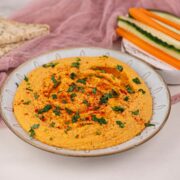



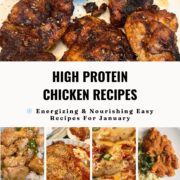


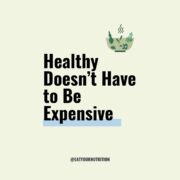



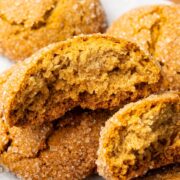
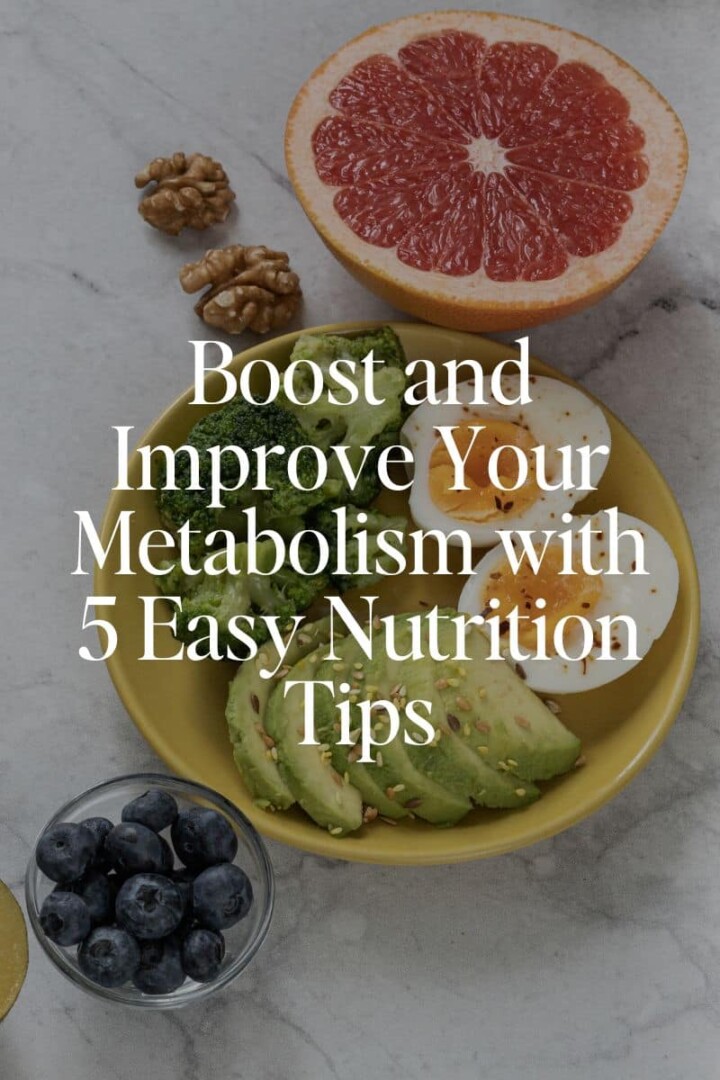

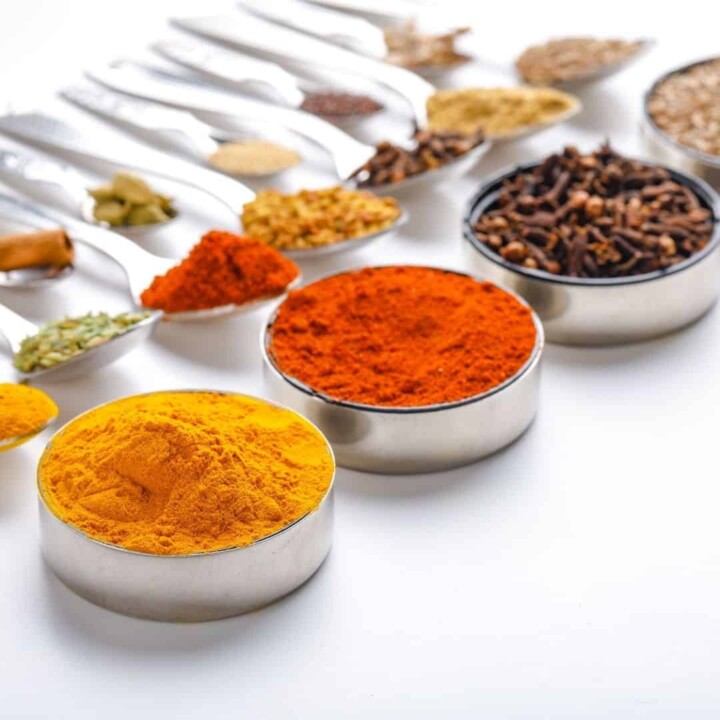
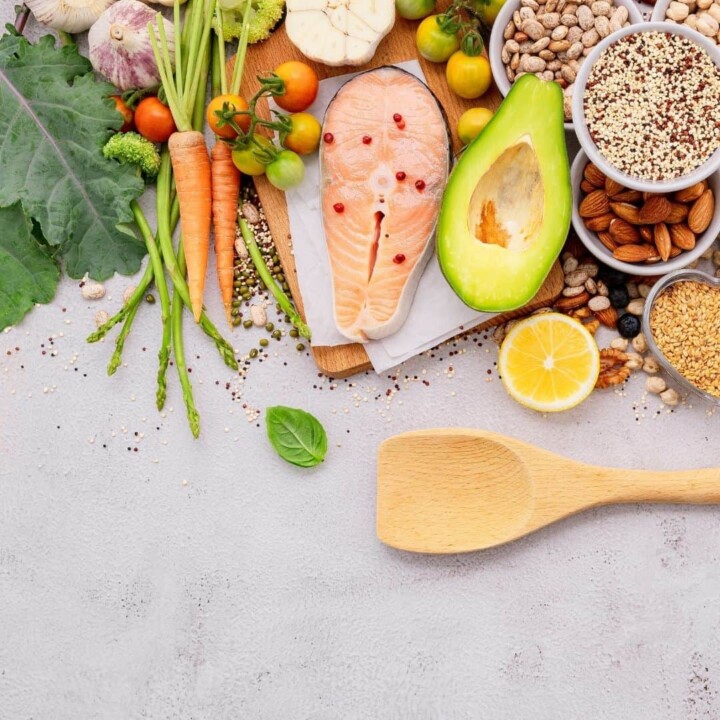


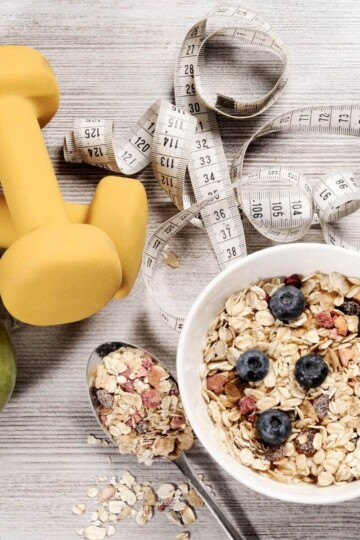
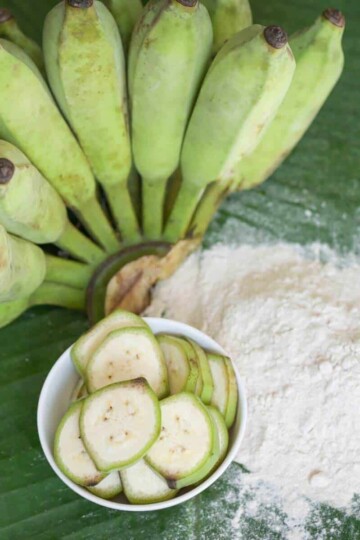
Comments
No Comments